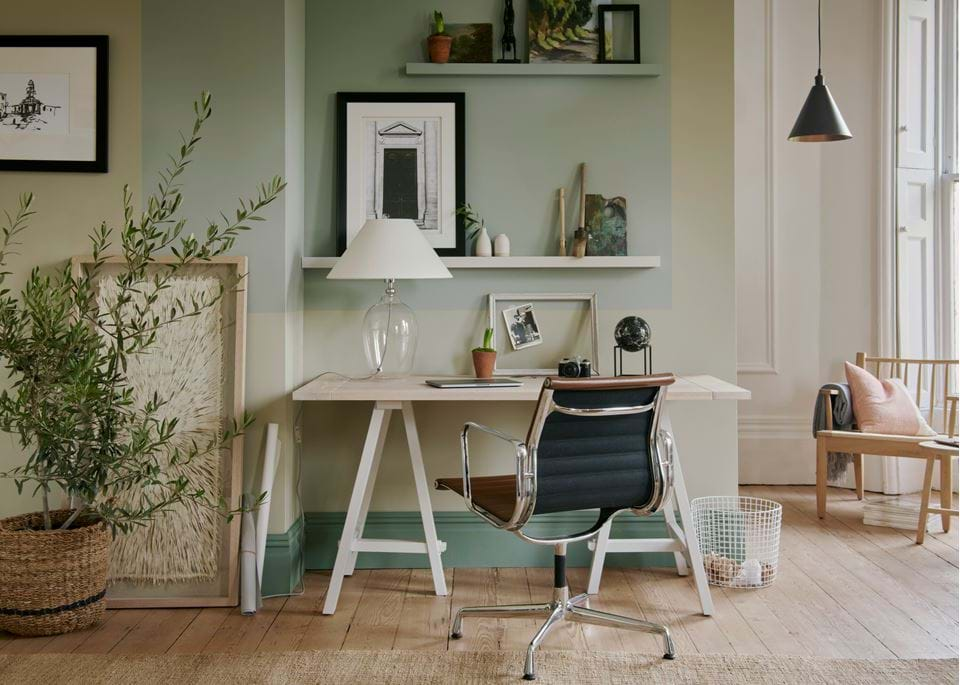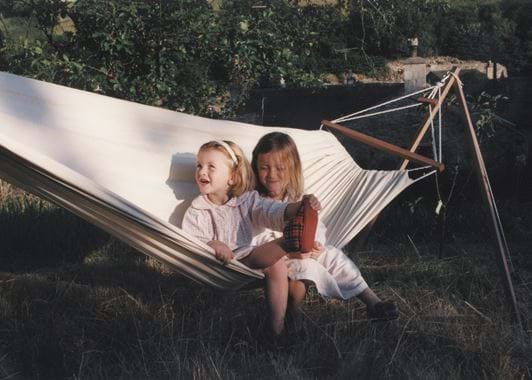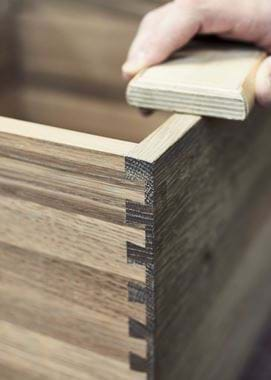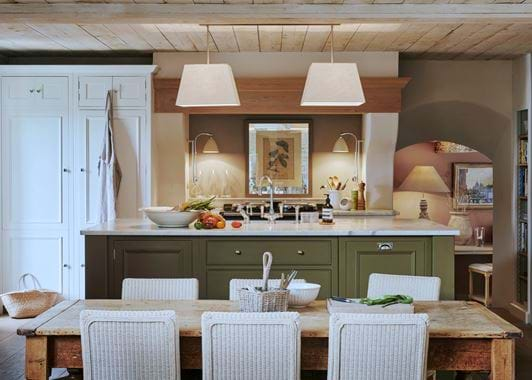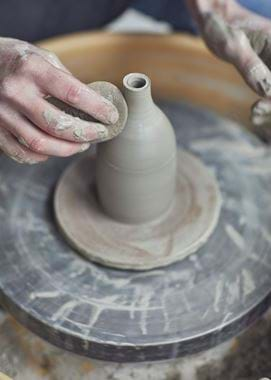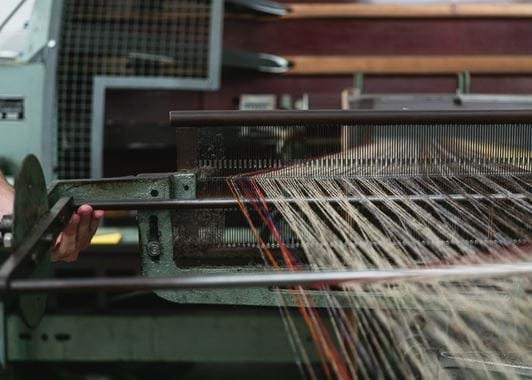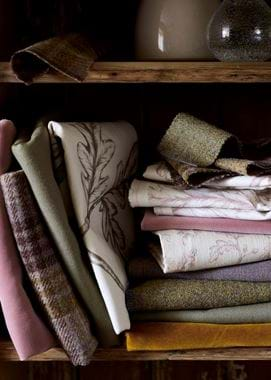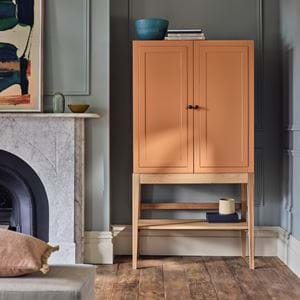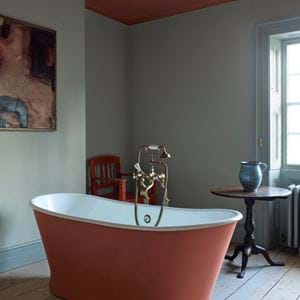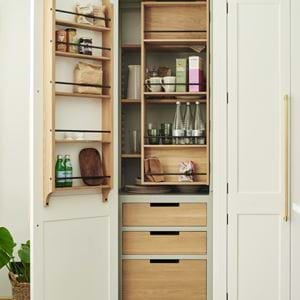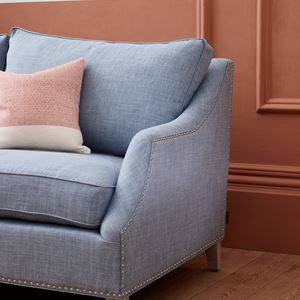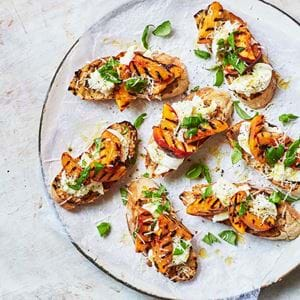A voyage of craftsmanship and creativity
A voyage of craftsmanship and creativity
Craftsmanship is both an inspiration and an abiding principle for Neptune and its co-founder John Sims-Hilditch. It was there in the earliest designs, is on show in their attention to materials and detail, and extends into the company’s growing support for craftspeople and a celebration of their creativity.
Ask someone at the head of a creative and successful furniture company for the values by which they measure their products, and you might not expect ‘seaworthiness’ to crop up. But for John Sims-Hilditch, it makes perfect sense.
“I’ve always loved sailing – even the name Neptune came through our love of the sea – and there’s something about the seaworthiness of materials that fits with our sense of quality. That was the case right from our earliest days. At sea, if what you’re sailing isn’t of the best quality, lives are at risk.
“When we began by making hammocks, our very first designs, that might not have been quite the case for us, but we still knew that if we didn’t use the right materials, someone could really hurt themselves. So, we were very conscious of using very good canvas, excellent rope, really solid wood, and of the craftsmanship that brings them together to create a product. It was our starting point, one of our first values, and it’s stayed with us ever since.”
Since then, Neptune’s own journey has taken it from producing garden furniture around John and Emma’s (Neptune’s creative director and John’s wife) kitchen table to creating a widely recognised lifestyle brand sold across the world.
However, just like at sea, a business can be buffeted during its voyage by financial squalls or the scowling clouds of a forbidding bank manager. Neptune certainly was. In its early years, even though the products were doing well, and customers were delighted, cash flow was tough. “The bank even took our chequebook away,” remembers John ruefully, but says the experience taught them an invaluable lesson in steeling your nerve (a familiar encounter for countless other makers and craftspeople).
“When times get hard, you can be tempted to reduce your quality. But one lesson we’ve learned in 25 years is never to allow the financial tail to wag the dog. It’s absolutely crucial to stay true to what you believe in.”
Sharing your values with everyone under your roof
Eventually, with a great product, a lot of hard work, and some luck, there may come a time when you have to step up your operation; when you make the practical and cultural leap from workshop to production house. So how do you enthuse a growing team, many of them new to the business, and convince them to share your values?
“For me, it’s important that whoever is involved in a design needs to see the customer in their mind’s eye – and that can be hard. But if you can find a way to get that emotional engagement happening, the results are fantastic.”
Even though Neptune uses computer-aided machinery to deliver precision and consistency within its components, much of the finishing is still done by hand, and therein lies an opportunity to generate pride in the details. “Even though someone may not be making the whole dresser, just the drawer boxes, there are still lovely dovetail joints on the corners that they’re helping to bring together. It can be a huge satisfaction knowing that somebody is going to see that every time they open that drawer – and you played a part in that enjoyment.”
Supporting the creative community
It’s also vital to encourage the view of creative making as a wide concept, not a narrow one, says John. “What matters is that there’s unique creativity going on that reflects an individual human being, and that’s why it’ll mean something to you as the owner of that object. Find the things that mean something to you and that you have a connection with, then buy them because they’re part of your personal journey.”
But how easy is it to show that unique and individual flash of creativity in such a broad collection that evolves twice a year? Isn’t it easier to reveal the maker’s hand in smaller accessories than larger pieces?
“When you make something that’s a little uneven, the hand-crafted element is more apparent – and our accessories, such as our tableware, are a place where we can explore that. But it isn’t just about wobbly edges in accessories. Our furniture shows creativity in a much deeper sense.”
One of Neptune’s key design tenets is contrast. “But frequently people just think of that as contrast in colour,” says John. “Of course that’s important, but there’s also contrast in materials, textures and finishes. They all build up layers of interest. If you make everything too ‘clean’ there’s nothing to stop you, to make you pay attention, so contrast is something we really believe in as a way of communicating that creativity.”
It’s an approach Neptune also fosters in its customers. “We try to show in our photography a mix of pieces and things that you might pick up. We would really encourage our customers to do that. Every home should be individual and there are lots of ways we can help our customers achieve that, through customisation and the many different hardware styles they can choose.”
Finding your art and craft
So what message would he give to other craftspeople out there, starting their own journey and in search of their own ‘seaworthiness’? Being a craftsperson can be lonely, admits John. The complications of establishing a business plan, calculating the value of your own time, and a score of other considerations weigh heavy when it’s only one head, or perhaps a few, making all the decisions. And that’s one of the reasons Neptune has been looking to find British craftspeople they feel a connection with, advising and supporting them where they can.
“One of the joys if you’re a creative person is bringing other people into that equation. Over the centuries, this was done in art workshops where artists would help each other to learn and flourish. Developing your principles and your philosophy alongside your art was important then – it still is now – and if I was helping to coach craftspeople, that’s what I’d want to give time to.”
Deborah Barker is former editor-in-chief of Homes & Gardens and 25 Beautiful Homes – two of the UK’s leading interiors magazines.
